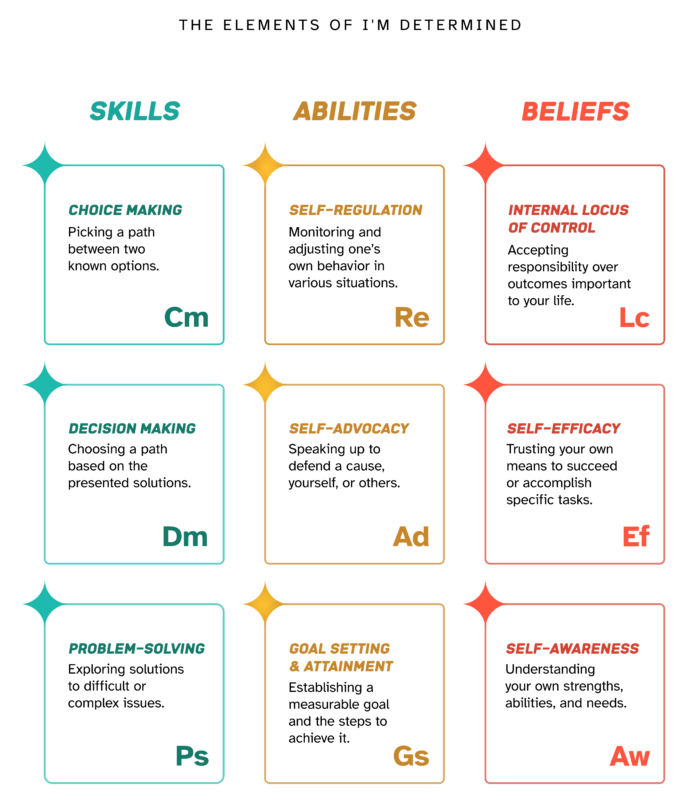About Self-Determination
What is Self-Determination?
I’m Determined defines self-determination as the belief in your own ability to set goals for your future, make decisions confidently, and be internally motivated to achieve your goals. When you’re self-determined, you know that you can accomplish things on your own, or that you can ask for help when you need it.
Self-determination is important for everyone, but can be especially important for young people with disabilities. It’s crucial for educators and families to learn how to foster self-determination in their students and children.

The main elements that make up our approach here at I’m Determined fall into three categories:
- Skills, such as decision or choice making and problem-solving
- Abilities, like self-regulation, self-advocacy, and setting and attaining goals
- Beliefs, like accepting responsibility, trusting your ability to succeed, and understanding yourself
Why Self-Determination is Important for Young People
Self-determination allows you to chart a path to independent living by taking control of your own life, setting goals, believing in yourself, and starting down a path to achieve your dreams. Self-determination involves three “psychological needs”:
- Competence – believing in yourself and having the skills to do whatever task is before you
- Autonomy – the ability to control what happens to you in any given situation
- Relatedness – a sense of belonging
These “essential nutrients” allow you to grow and adjust to circumstances as they arise.
I’m Determined has resources and tools to help you strengthen your competence, autonomy, and relatedness.
Why Educators Should Foster Self-Determination
Students who have learned self-determination skills experience better post-school employment outcomes, more stability, and greater independence. As an educator, you have a unique opportunity to help students grow in their self-determination skills. Whether you work in preschool, elementary school, middle school, or high school education, you can help your students set goals and understand the steps needed to reach those goals.
Fostering self-determination is something you can incorporate into every lesson plan and every interaction with a student, both inside and outside of the classroom.
Why Self-Determination Matters for Families
As a parent or family member of a young person with disabilities, you want to help them set and achieve meaningful goals to live a full, happy life. From involving your child in their IEP meetings to giving them opportunities to practice autonomy at home, there are many ways for you to support your young person on the path to self-determination.
Encouraging self-determination from the start helps to establish a set of skills that will lead to better postsecondary outcomes, independence, and an ability for your student to lead their own life.
